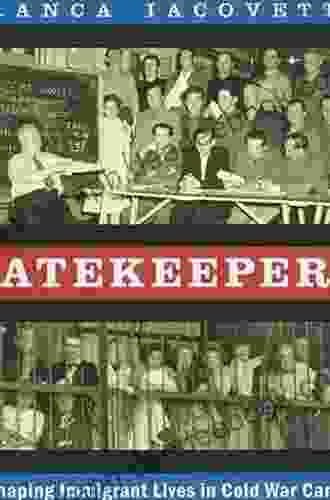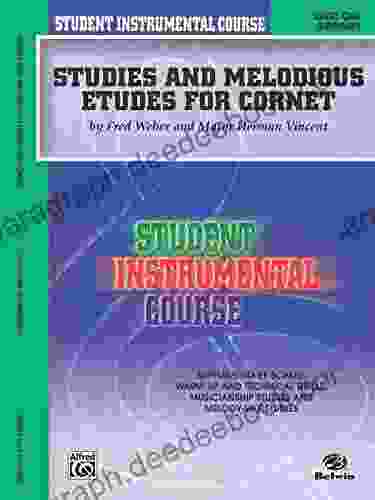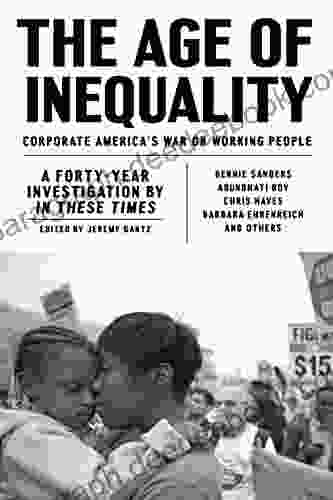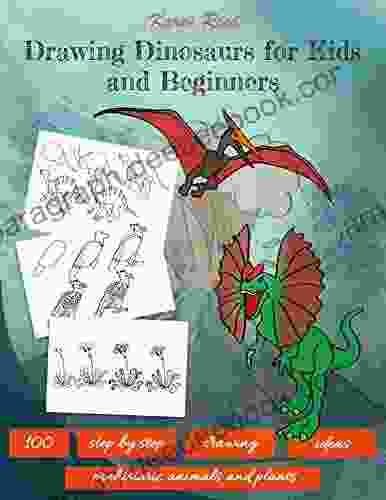Gatekeepers Reshaping Immigrant Lives In Cold War Canada: A Historical Analysis of the Immigration and Refugee Board

During the Cold War, the Immigration and Refugee Board of Canada (IRB) emerged as a crucial gatekeeper institution, shaping the fate of countless immigrants and refugees seeking entry into the country. The IRB's decisions had a profound impact on individuals' lives, families, and communities, and its policies reflected the evolving political, social, and economic context of the time. This article delves into the historical development of the IRB, its role in managing immigration and refugee flows, and the impact of its decisions on immigrant lives during the Cold War era.
The Origins and Evolution of the IRB
The IRB traces its roots to the Immigration Appeal Board established in 1968, which handled appeals related to exclusion and deportation orders. In 1978, the Immigration Appeal Board was expanded and renamed the Immigration and Refugee Board, with the mandate to adjudicate immigration and refugee claims. The IRB operated independently of the Department of Citizenship and Immigration, ensuring a degree of impartiality and separation of powers in immigration decision-making.
5 out of 5
| Language | : | English |
| File size | : | 5772 KB |
| Text-to-Speech | : | Enabled |
| Screen Reader | : | Supported |
| Enhanced typesetting | : | Enabled |
| Word Wise | : | Enabled |
| Print length | : | 600 pages |
| Lending | : | Enabled |
The Cold War Context: Political and Ideological Influences
The Cold War had a significant influence on the IRB's policies and procedures. The rise of communism and the fear of Soviet infiltration led to a heightened focus on national security and a stricter screening of potential immigrants. The Canadian government sought to limit the entry of individuals who were perceived as potential communist sympathizers or security risks.
In addition, the IRB's decisions were shaped by Cold War ideological debates about human rights and humanitarian obligations. Canada's commitment to supporting refugees fleeing persecution was tempered by fears of increased asylum seekers exploiting the system. The IRB had to navigate the complex balance between maintaining national security and upholding humanitarian principles.
Managing Immigration Flows: Quotas and Selection Criteria
During the Cold War, Canada implemented a quota system to regulate the number of immigrants admitted each year. Quotas varied by country and were based on factors such as economic needs, political alliances, and perceived security risks. The IRB was responsible for administering the quota system, determining which individuals met the eligibility criteria and would be granted entry.
Selection criteria used by the IRB included factors such as education, skills, language proficiency, and previous employment experience. Preference was given to individuals who were deemed to have the greatest potential to contribute to Canada's economic and social development. This emphasis on economic self-sufficiency reflected the country's desire to select immigrants who would quickly integrate into society and become productive members of the workforce.
The Role of Refugee Claims
The Cold War also witnessed a significant increase in the number of refugees seeking asylum in Canada. The IRB played a crucial role in adjudicating refugee claims and determining who would be granted protection. Refugee claims were assessed based on the United Nations Convention Relating to the Status of Refugees, which defines a refugee as someone who has been forced to flee their country due to a well-founded fear of persecution based on race, religion, political opinion, nationality, or membership in a particular social group.
The IRB's refugee determination process faced numerous challenges during the Cold War, including the difficulty of verifying claims in distant countries, the potential for false claims, and the political pressure to limit asylum seekers. The IRB had to develop procedures to assess claims fairly and consistently while balancing national security concerns with humanitarian obligations.
The Impact on Immigrant Lives
The decisions made by the IRB had a profound impact on the lives of immigrants and refugees. Those granted entry were able to start new lives in Canada, contribute to the country's economy and society, and reunite with family members. However, those denied entry or refugee status faced deportation, separation from loved ones, and the prospect of returning to potentially dangerous situations.
The IRB's policies also affected the demographics and composition of the Canadian population. The selection criteria favored certain groups of immigrants over others, influencing the cultural and linguistic diversity of the country. The focus on economic self-sufficiency led to a higher proportion of skilled and educated immigrants entering Canada.
During the Cold War, the Immigration and Refugee Board of Canada emerged as a powerful gatekeeper institution, shaping the lives and destinies of countless immigrants and refugees. The IRB's policies and procedures reflected the complex political, social, and economic context of the time. The board's decisions had a profound impact on individuals, families, and communities, influencing the demographics, diversity, and fabric of Canadian society. The historical analysis of the IRB provides valuable insights into the role of gatekeepers in immigration and refugee management, as well as the ongoing debates and challenges in balancing national security concerns with humanitarian obligations.
5 out of 5
| Language | : | English |
| File size | : | 5772 KB |
| Text-to-Speech | : | Enabled |
| Screen Reader | : | Supported |
| Enhanced typesetting | : | Enabled |
| Word Wise | : | Enabled |
| Print length | : | 600 pages |
| Lending | : | Enabled |
Do you want to contribute by writing guest posts on this blog?
Please contact us and send us a resume of previous articles that you have written.
 Book
Book Novel
Novel Chapter
Chapter Genre
Genre Reader
Reader Paperback
Paperback E-book
E-book Newspaper
Newspaper Paragraph
Paragraph Sentence
Sentence Shelf
Shelf Synopsis
Synopsis Manuscript
Manuscript Tome
Tome Library card
Library card Narrative
Narrative Autobiography
Autobiography Memoir
Memoir Reference
Reference Character
Character Resolution
Resolution Librarian
Librarian Catalog
Catalog Card Catalog
Card Catalog Borrowing
Borrowing Stacks
Stacks Archives
Archives Periodicals
Periodicals Study
Study Research
Research Scholarly
Scholarly Reserve
Reserve Journals
Journals Interlibrary
Interlibrary Thesis
Thesis Dissertation
Dissertation Storytelling
Storytelling Reading List
Reading List Theory
Theory Textbooks
Textbooks Tyler Wagner
Tyler Wagner Nicholas Haralambous
Nicholas Haralambous Minki Kim
Minki Kim Jason Tad Plinta Howard
Jason Tad Plinta Howard Michael O Hanlon
Michael O Hanlon Bryan Mccann
Bryan Mccann Pauline Greenhill
Pauline Greenhill Atsushi Ito
Atsushi Ito Don Milligan
Don Milligan David Gelernter
David Gelernter Shixia Huang
Shixia Huang Robert Gaylon Ross
Robert Gaylon Ross Jill Mcdonald
Jill Mcdonald Mark J Rozell
Mark J Rozell D L Smith Lee
D L Smith Lee Rebecca Makkai
Rebecca Makkai Joseph C Zinker
Joseph C Zinker The Old Bog Road
The Old Bog Road Dr Bill Thierfelder
Dr Bill Thierfelder John Mitchell
John Mitchell
Light bulbAdvertise smarter! Our strategic ad space ensures maximum exposure. Reserve your spot today!
 Paulo CoelhoFollow ·16.3k
Paulo CoelhoFollow ·16.3k Darrell PowellFollow ·9k
Darrell PowellFollow ·9k Efrain PowellFollow ·2.9k
Efrain PowellFollow ·2.9k Peter CarterFollow ·11.5k
Peter CarterFollow ·11.5k J.D. SalingerFollow ·12.2k
J.D. SalingerFollow ·12.2k Arthur Conan DoyleFollow ·11.6k
Arthur Conan DoyleFollow ·11.6k W.H. AudenFollow ·14.3k
W.H. AudenFollow ·14.3k Chris ColemanFollow ·16.4k
Chris ColemanFollow ·16.4k

 Ricky Bell
Ricky BellThe Marriage: An Absolutely Jaw-Dropping Psychological...
In the realm of...

 Ray Blair
Ray BlairDiscover the Enchanting Charm of Budapest and Its...
Nestled in the heart of...

 Tyrone Powell
Tyrone PowellHuddle: How Women Unlock Their Collective Power
Huddle is a global movement that empowers...
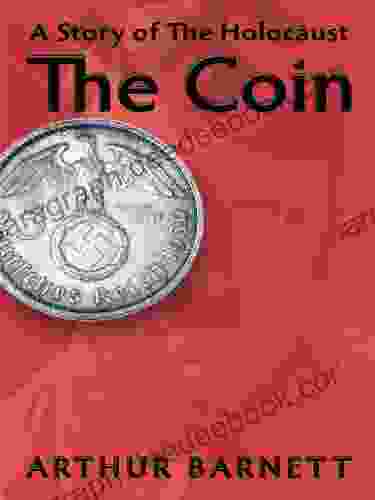
 Grayson Bell
Grayson BellThe Coin Story of the Holocaust: A Symbol of Hope and...
In the depths of the...
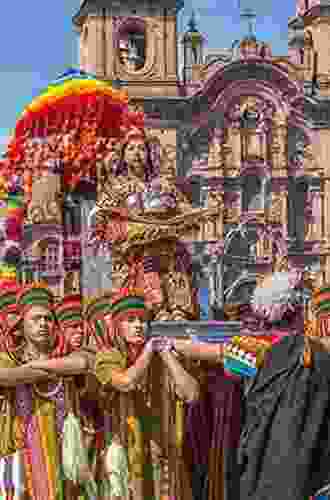
 Virginia Woolf
Virginia WoolfFolklore Performance and Identity in Cuzco, Peru: A...
Nestled amidst...

 Dylan Mitchell
Dylan MitchellThe Enduring Love Story of Héloïse and Abélard: A Tale of...
An Intellectual Passion In the heart of...
5 out of 5
| Language | : | English |
| File size | : | 5772 KB |
| Text-to-Speech | : | Enabled |
| Screen Reader | : | Supported |
| Enhanced typesetting | : | Enabled |
| Word Wise | : | Enabled |
| Print length | : | 600 pages |
| Lending | : | Enabled |


